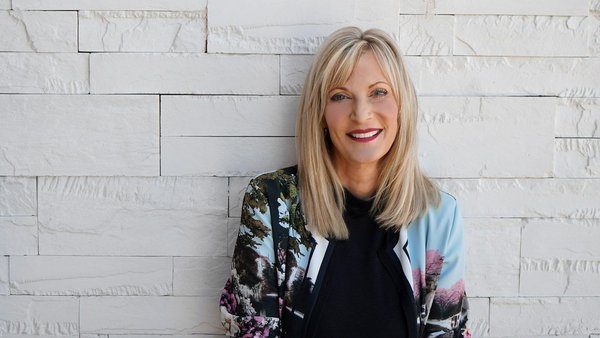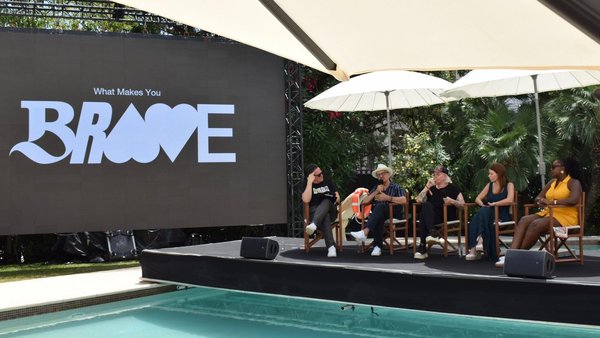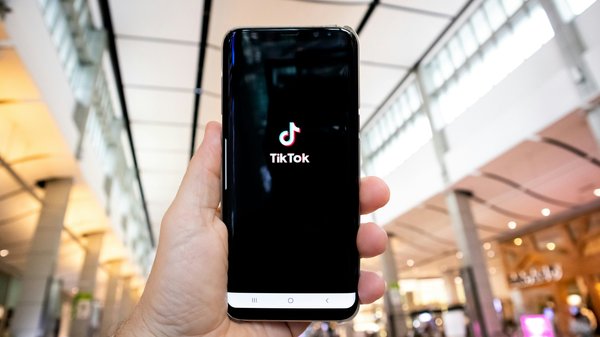Promoted content
Culture, commerce and the Gen Z consumer /
Discover the cultural forces shaping how Gen Z shop from our webinar

Winning in culture to drive commerce is essentially about understanding the cultural codes that you’re operating within, and in today’s online marketplace, Gen Z isn’t just participating in this cultural economy – they’re curating its very foundations.
That’s the central message from our latest webinar, where Contagious, in collaboration with report creators FleishmanHillard and Flywheel, explored key insights from Beyond the Basket: Cracking the Cultural Code of Gen Z Shopping.
It may have started as a conversation about Gen Z’s evolving path to purchase, but it quickly expanded into a rich analysis of the cultural, emotional and behavioural forces reshaping commerce itself.
Paul Kemp-Robertson, chief content officer at LIONS and Contagious co-founder, set the tone: ‘Our job as marketers has always been to decode behaviour, but today it’s shaped as much by culture, community and identity as by price or convenience.’
Lauren Winter, global MD of consumer culture at FleishmanHillard, opened with a stark truth: the traditional marketing funnel no longer fits: ‘We’re still playing catch-up with an algorithm that is essentially ever-changing.’
Consumer decision-making has accelerated dramatically since the pandemic, driven by constant content while brand processes lag behind. Brand success requires operating in the culture-to-commerce loop, which Winter describes as ‘turning cultural passion into performance again and again’ and abandoning outdated silos. Gen Z doesn’t experience brands in fragments – so why are we still creating in them?
Winter highlighted Mattel’s partnership to create the first Barbie with Type 1 diabetes as exemplary long-term relevance. ‘Mattel had to rip up the rulebook and let the brand be rewritten for the current cultural zeitgeist, but that gave them daily talkability with real substance.’
She also cautioned against mindless slop – ‘a beige buffet of safe, samey content engineered for algorithmic approval’, urging brands to move from vanity metrics to real connection with consumers.
Adam Wyatt, FleishmanHillard
Danny Hoffman, senior director at Flywheel, then described today’s commerce journey as a constellation – scattered, interconnected, and driven by algorithmic personalisation – rather than a downward funnel. He presented a case study about a vacuum brand he worked with and how it successfully targeted pet owners with ads featuring pets alongside vacuums, resonating with this high-conversion audience.
‘The eventual goal,’ Hoffman explained, ‘is to use data not just to sell, but to create relationships that last longer than five minutes.’ He emphasised understanding predictive behaviours over demographics, stating, ‘tech and data now let us identify, interact and stay with consumers for the long haul.’
But he also acknowledged that while people traditionally compare products online side-by-side, many have ‘taken their emotion out of it’ in favour of Generative Engine Optimisation (GEO). So now, it’s not just about ranking higher; instead, Hoffman recommends personalised targeting outside ecosystems and optimising for specific consumer queries rather than just search terms.
Adam Wyatt, head of brand strategy & culture at FleishmanHillard, then emphasised the power of fandom in commerce, noting that ‘we think of audiences as fans first… they are loyal, create content, and spend.’ He stressed that ‘fandom is driven by culture, so for a brand to lean into it, they have to understand the cultural space’. That includes recognising when Gen Z are burnt out by algorithms and craving what Wyatt calls a new era of romanticism – serendipity, real-life connection, and non-digital discovery.
He cited the Oasis x adidas collaboration as a good example of a brand understanding its cultural opportunity and authentically connecting with audiences through meaningful partnerships.
Christina Peach, UK inclusive comms lead at FleishmanHillard, challenged brands to broaden their view: ‘Gen Z are not this sort of monolith.’ Too many brands focus on a narrow version of Gen Z and are ‘missing the depth, the diversity, but also the commercial potential of this huge cohort of people.’ For example, one in five Gen Z in the UK identifies as disabled – and only 4% of ads reflect that.
She framed inclusion not just as representation, but growth, saying, ‘When brands reach underrepresented audiences with relevance, they don’t just win likes or brand lust. They win long-term loyalty and spend.’
Overall, it was clear to see that as the industry gets smarter, faster and more automated, human connection is still the differentiator. The most powerful work often starts in the blind spots, and as Christina Peach put it, ‘If you’re serious about cultural relevance, start with who’s missing from the brief – not who’s already in it.’
Missed any insights? Watch the full recording here. Gain expert perspectives on Gen Z shopping behaviours and cultural influences from our webinar in collaboration with FleishmanHillard and Flywheel.
Want more of the same? /
We don’t just write about best-in-class campaigns, interviews and trends. Our Members also receive access to briefings, online training, webinars, live events and much more.




